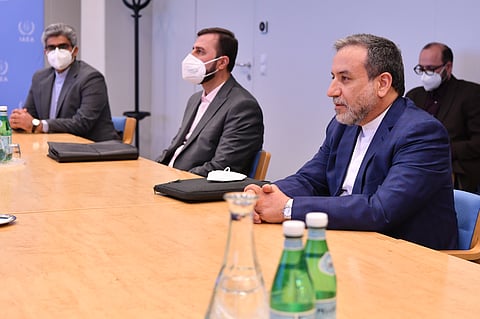

The European Troika — the U.K., Germany, and France, collectively known as the E3 — reiterated on Wednesday that Iran has not done enough to avoid the reimposition of United Nations sanctions. The warning comes just weeks before an October 18 vote that will decide whether sanctions lifted under the 2015 nuclear deal are permanently removed.
The E3 issued their statement following a phone call with Iranian Foreign Minister Abbas Araghchi, during which they reviewed Tehran’s recent commitments. Despite a new framework agreement reached last week between Iran and the International Atomic Energy Agency (IAEA) to resume inspections, European officials said Tehran’s steps remain inadequate.
German Foreign Ministry spokesperson Steffen Hebestreit told reporters, “At this point, the steps taken by Iran have not been sufficient.” U.K. Foreign Secretary David Lammy added, “Iran cannot be allowed to develop or acquire nuclear weapons. We will not let the snapback mechanism lapse on October 18 without action.” French Foreign Minister Jean-Noël Barrot characterized the talks with Araghchi as “constructive but insufficient.”
The E3’s stance makes it increasingly likely that the UN Security Council will not permanently lift sanctions that include arms embargoes, asset freezes, and restrictions on ballistic missile activity. The so-called “snapback” sanctions would automatically reimpose these measures by the end of September unless the Security Council delays the vote or negotiates a new interim deal.
Late last month, the E3 announced their intention to pursue the snapback option, citing Iran’s continued enrichment of uranium above JCPOA limits and insufficient cooperation with the IAEA.
The United States, though no longer a signatory to the JCPOA after withdrawing in 2019, is expected to use its veto power at the Security Council to block any permanent lifting of sanctions. Meanwhile, Russia and China have argued that the E3 lack the legal authority to trigger snapback provisions, given that the U.S. abandoned the deal. Both Moscow and Beijing have signaled they will not recognize or enforce new sanctions should they be reimposed.
The looming deadline underscores the widening diplomatic rift over Iran’s nuclear program, leaving Tehran’s future under international sanctions increasingly uncertain.